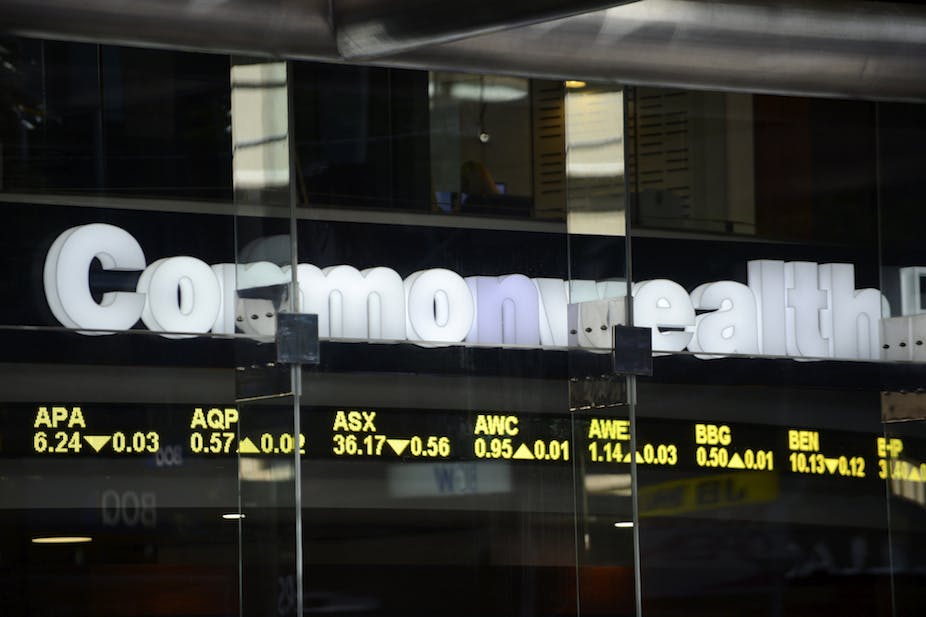A senate inquiry has called for the Commonwealth Bank (CBA) and Australia’s corporate regulator, the Australian Securities and Investments Commission (ASIC), to be investigated by a Royal Commission.
The recommendation follows evidence of serious misconduct by the bank’s financial arm, Commonwealth Financial Planning Limited (CFPL) and what the Senate Economics References Committee chairman Senator Mark Bishop described in a press release as “appalling” conduct that included forgery.
“The conduct of a number of CFPL advisers was unethical, dishonest, well below professional standards and a grievous breach of their duties.
"The way in which vulnerable trusting people were targeted shows that the CFPL planners involved had a callous disregard for their clients’ interests. That a major financial institution could have tolerated for so long conduct that included apparent criminal activity is not easy to accept.”
ASIC also faces criticism of allowing itself to be “complacent” with the Committee saying its “slow response to the CFPL case and lack of scepticism is hard to explain”.
ASIC has responded with this statement.
The Commonwealth Bank has previously apologised and has acknowledged the committee’s report in a statement but refuted Senator Bishop’s statements. Liberal Senator David Bushby has also tabled a dissenting report.
Kept in the dark
The Senate Committee inquiry, driven by relentless reporting from Fairfax’s Adele Ferguson has handed down 61 recommendations, mostly aimed at enabling ASIC to efficiently carry out its responsibilities.
ASIC’s investigations into the CFPL matter eventually resulted in several advisers being banned, more than 1000 customers receiving compensation and enforceable undertakings entered.
But the considerable delay before ASIC launched its investigation following information from industry whistleblowers, caused considerable criticism of its accountability, relationships with other regulators, complaints management, and whistleblower protection.
The ensuing Senate inquiry has prompted some 474 submissions, including many that were confidential, and five by ASIC itself, five public hearings, and an interim report in May, which flagged issues of CBA’s handling of the CFPL matter.
There was further investigation after evidence of inconsistencies emerged between ASIC and the CBA about the payment of compensation to CFPL clients who had lost money.
The committee sees the CBA as keeping not only its clients and ASIC in the dark, but also the committee itself. It is concerned that there are others caught up in the CFPL affair that have yet to be fairly compensated.
The committee have now concluded that ASIC appeared to place too much trust in the internal mechanisms adopted by the CBA around the the conduct of CFPL financial advisers, particularly around compensating clients of CFPL affected by the misconduct.
Protecting whistleblowers
Other recommendations seek to improve protection for whistleblowers in the Corporations Act. While the relevant sections of the Act protect a “discloser” from civil and criminal liability for making the disclosure, they don’t protect that person from the consequences of their own activity. Perhaps this, and the fact that a report can’t be anonymous, are reasons why whistleblowers are few and far between.
Obviously a sluggishly reactive ASIC cannot be seen to instil confidence either. The fact that the whistleblower provisions of the Act do not enable former employees to be defined as “disclosers” also limits its effect.
Enforceable undertakings
ASIC’s willingness to enter enforceable undertakings has also been criticised. The committee supports their use but provides guidance, suggesting ASIC be required to include stronger terms, clearer acknowledgement of the misconduct and more vigilantly monitor compliance. In particular, the committee requests the Auditor-General consider conducting a performance audit of ASIC’s use of enforceable undertakings.
The committee specifically calls for the protection of anonymous disclosures, the substitution of the “good faith” requirement with a disclosure requirement, and limited protection for disclosures to the media.
Reforming the Corporations Act
Throughout the report the committee has highlighted the need for reform of the Corporations Act. For example, Recommendation 41 recommends civil and criminal penalty reviews, and tougher monetary penalties where warranted. Recommendation 61 suggests improving insolvency mechanisms to encourage and facilitate corporate turnarounds.
The Committee’s recommendations create quite a lot of work for ASIC. This may seem all the more daunting due to the significant reductions in ASIC’s funding resulting from the recent Federal Budget.
One of the most interesting recommendations is to replace ASIC’s current funding arrangements by a user-pays model, together with the removal of ASIC’s registry functions. These industry levies will, according to the committee, create incentives to certain industries to comply, thereby reducing the need for ASIC involvement. The committee also supports self-regulation, with ASIC working with companies to strengthen their internal compliance mechanisms.
It’s not all bad news for ASIC. Despite the criticism, the committee recognises the importance and difficulties of its role. While flaws in ASIC’s performance have been raised, it is clear that the framework of the law within which ASIC works may itself need revision.
ASIC would probably rather it ended here, but it can only now wait to see the outcome and form of the recommendation for an independent inquiry. One thing is for certain though, if you want ASIC’s attention in future, just whistle.

